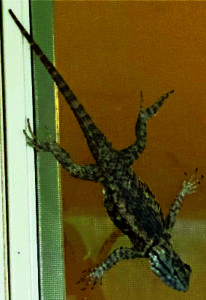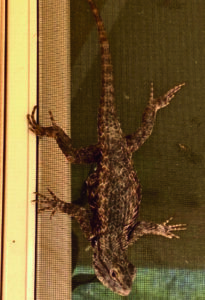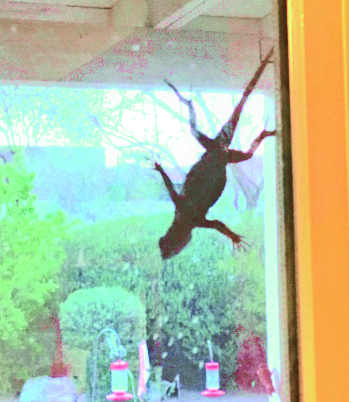I enjoy watching the sun rise over the Santa Catalina Mountains, and having a lizardly window dressing makes it even better. Who needs curtains when a Desert Spiny Lizard drapes herself across the screen?
The Desert Spiny Lizard, Sceloporus magister, is a native of the Sonoran Desert. My window ornament is probably a female, since I couldn’t find any blue patches on the belly, throat, sides and tails. The coloration is great camouflage from predators. Desert Spiny’s grow to a length of about five and a half inches. You might also see them doing their push-ups, which is a territorial display, not exercise.

Like all ectothermic reptiles, these lizards absorb heat form sunlight to raise their body temperatures. To aid in this process, the spiny’s are darker when it is cool. They become lighter when sufficiently warmed. Compare the photo right with the photo below which was taken several hours later.

The spiny’s are active during the day, although they’ll seek shade during the hottest periods of summer. They brumate during the cold months of winter.
They are primarily insectivores, but also feed on spiders, centipedes, and small lizards. I suspect the lizard was waiting to ambush insects drawn the window by my interior lights.
I’m hoping this lizard will be a regular visitor and I hope she brings her friends!
Book Note: If your children love lizards as much as I do, they might enjoy my fun science books that feature lizards as the main characters on adventures! Along the way, we learn about these lizards and their environments. Summer is coming and educational, fun adventure tales can help pass the days in a meaningful way. Check them out on the Lizards page.
#elaineapowers #sonorandesertlizard #desertspinylizard #Sceloporus magister #weloveourlizards #funscienceeducation #funsciencebooks

